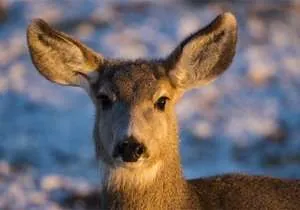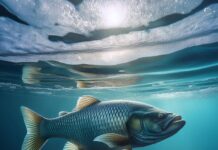Synthetic structures are forty-eight cubic feet and can last more than 10 years
PRATT – Kansas Department of Wildlife, Parks and Tourism (KDWPT) fisheries staff will be launching a new program to increase the amount of fish-attracting structures in Kansas lakes. Traditionally, biologists have used cut trees to create brush piles to attract and hold fish, providing angling hotspots. However, attaching concrete blocks to trees can be labor intensive and time consuming and the trees don’t last very long once submerged in the water. The new specially-designed PVC structures are in the shape of a cubes three feet tall, four feet wide, and four feet deep. Cost-effective, easy to place and proven in other states, the new structures not only last more than three times longer than natural brush piles, but they also have been shown to hold as many fish as the natural counterpart without affecting water quality. Anglers can expect to see the implementation of these structures as soon as early February.
“Our goal is to produce 150-300 of these PVC cubes each year,” said Bryan Sowards, KDWPT fisheries programs specialist. “For 2015, structures will go in Milford, Wilson, Melvern, El Dorado, and Cedar Bluff, as well as a variety of other community and state fishing.” Sowards added the structures will immediately attract fish for angler harvest, but the overall goal is to accumulate enough structures to improve fish populations.
Known as “Georgia Cubes,” the structures were originally designed by the Georgia Department of Natural Resources (DNR). Stacking more than 50 feet of corrugated pipe on the PVC frame, Georgia DNR staff have been able to create optimum surface area to attract fish while still maintaining an open design. They have also found that the structures quickly accumulate periphyton, a complex mix of algae, fungi, and bacteria, which further attracts insects and fish – an ideal result for both fisheries staff and anglers.
Thanks to the involvement and commitment of Kansas B.A.S.S. Nation (KBN) clubs, KDWPT staff will have assistance in constructing and placing these cubes in select Kansas waters.
“These cubes will not only provide habitat for adult fish of all species, but also provide critical nursery habitat.” said Jeff Nolte, Conservation Director for KBN. “We at KBN are very excited and encouraged by the fisheries staff’s commitment to improving Kansas fisheries in general. We have had a great relationship with KDWPT in the past and this cooperative effort bodes well for a continued relationship that will benefit all fisheries, not just bass.”
Source: Kansas Department of Wildlife, Parks and Tourism




